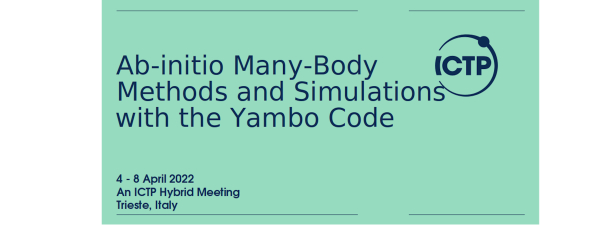Both theoretical and technical lectures will be offered as well as dedicated hands-on sessions where students will learn how to use the code for materials of current research interest and how to optimize its use in a parallel environment. Several post-processing tools for the analysis of the results will be also introduced and practically applied.
General topics will include self-energy and quasiparticles concepts, the GW approximation, and the Bethe-Salpeter equation, all placed in the context of and linked with experimental measurements (photoemission, absorption, photoluminescence).
At variance with previous editions, this school will present some advanced lectures such as: new algorithms developed to deal with electron-phonon interactions, real time evolution of equations of motion, time dependent polarization in terms of the Berry phase, and computation of non-linear optical properties.
The specific usage in massively parallel environments equipped with modern accelerated video cards (GPU’s) will be introduced.
Participants are required to have a pre-existing background in DFT and in running DFT simulations.
Due to the pandemic period the school is designed to allow participants to join part in person and part online.
Deadline for application:
8 March 2022 (in person)
20 March 2022 (remote participation)
Online application and for Further information
A limited number of grants are available to support the attendance of selected participants, with priority given to participants from developing countries.
There is no registration fee.
Lecturers:
C. ATTACCALITE, CNRS, Aix-Marseille University, France
A. FERRETTI, CNR-NANO, Italy
M. GRUNING, Queen’s University Belfast, UK
A. GUANDALINI, CNR-NANO, Italy
D. A. LEON VALIDO, CNR-NANO, Italy
A. MARINI, CNR-ISM, Italy
B. MONSERRAT, University of Cambridge, UK
M. PALUMMO, Università di Roma Tor Vergata, Italy
S. RAFAELY-ABRAMSON, Weizmann Institute, Israel
L. REINING, École Polytechnique, France
D. SANGALLI, CNR-ISM, Italy
P. SHEVERDYAEVA, CNR-ISM, Italy
D. VARSANO, CNR-NANO, Italy


 English (UK)
English (UK)  Italiano (Italia)
Italiano (Italia)